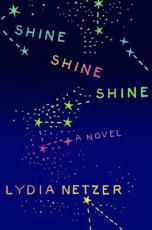One day, I will write a novel. This novel might be a creative catharsis for emotional traumas I’ve experienced in my early adulthood. Perhaps I will endeavor epic research and transplant myself to another place, another time, assume the persona of a controversial monarch or create fantasy world in which I can create the life I cannot live on this Earth. A more remote possibility is that I would channel the inner comedian, dormant for my entire existence until the clever wit descended upon a couple of hundred of pages.
When I write this novel, perhaps I won’t have the network, the timing or even the blessing of the Fates to acquire an editor, an agent, a publisher. When I take matters into my own hands and fumble and blunder, I will follow my rookie writer foibles with this letter: An Open Apology to Bloggers
Dear Blogger,
I am terribly sorry if, in a fit of love angst I sent you, your friends, and your friends’ friends hard copies of my ARC with the expectation that you review it. Please don’t. As my now EX, there is nothing that would please me more than for you and your associates to burn every copy you have been mailed. Use them as kitty litter. Distribute them to the homeless. I don’t care, but please, for the love of all Gods Christian, Pagan, Jewish, Hindu, Muslim or any other faith, DON’T review my book. Even if we departed on amicable terms, nothing good will come of your review. I once respected your input; I now kindly request your total departure from my life.
Secondly, I sincerely apologize for assuming that you have the living space for innumerable ARCs. I can imagine your living room: the radiator covers stacked with tomes, reducing the efficiency of their heat. The ceiling vents are blocked, so the A/C does not flow to cool the room in the summer. I now understand that, in order to sit on your one good chair, you are in a constant state of transferring stacks of books from one spot to another in order to sit and respond to my repeated requests to publish a five-star review of my first stab at sentence writing.
Lastly, I was completely Mad-Hatter Mad to expect that you spend your day exclusively speed reading ARCs, taking them to the toilet, the dinner table, the bedside. I now know that my writing has not caused you to forego sex or food to devour every last line. Your writing skills are not as supernatural as I had assumed, and it does actually take a few hours, if not days for you to piece together a coherent, thoughtful review. My Jedi powers must have failed me, and this is my fault, and this is why you aren’t seeing multiple stars highlighted across your GoodReads screen.
What I should have done, and I will endeavor to do so in the future, is to have done some research on your blog. I can see from a cursory glance that you don’t review young adult manga fantasy and that your authors are more literary and are frequent award winners. Silly me to think that homework ended in high school! Next time I will send an electronic copy of my first chapter. If you find it worth propping up the electronic device of your choice up by the kitchen sink while you are chopping vegetables for your four ankle-biters, I’d be thrilled to send you the rest via e-mail. In the event that I really require a timely review, I will contract with you at a minimum rate of $250 for your time reading and writing about my drivel.
I hope by now you received the apology tea gift basket. I was going to send chocolate (yes, I’ll admit I was pandering to the chick stereotype), but I saw your tweet that chocolate makes you break out. Perhaps you’ll find the chamomile relaxing and will be less likely to vent to your fellow bloggers about what an asshat I have been.
Well, now, I’m off to make my novel #2 professionalism checklist. My 12-step program for reformed novel writing is well underway with this letter of apology. Whew! I feel like I’ve just left adolescence and can put my big boy pants on.
Thanks again, and this will be the last pestering communication you receive from me. I’d hate for you to think that I’m some stalker.
All my best (and yes my best this time),
Author Me




